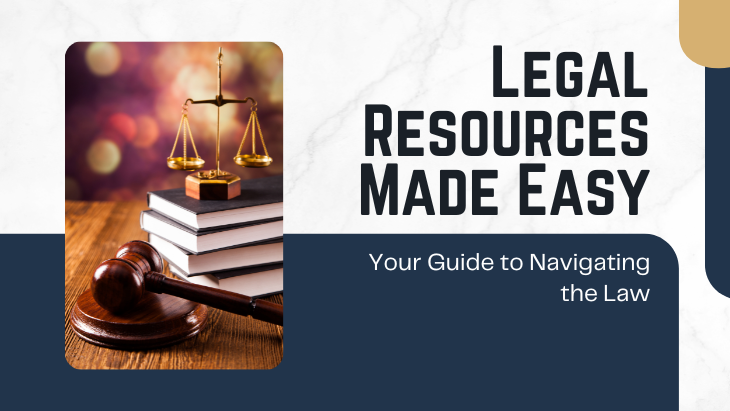Managing finances is one of the maximum vital elements of running a small business. Effective
financial management can be the difference between thriving and simply surviving in these days
aggressive marketplace. This article will explore first-class practices for a hit small commercial
enterprise financial management, offering actionable insights to assist commercial enterprise
owners hold financial fitness and acquiring a lengthy-term boom.
Understanding Financial Management
Financial management includes making plans, organizing, directing, and controlling the
monetary sports of an organization. For small corporations, this indicates ensuring there is a
sufficient budget for operations, investing in increased opportunities, managing dangers, and
optimizing income. Key additives include budgeting, accounting, financial reporting, cash drift
control, and strategic economic making plans.
1. Develop a Solid Business Plan
A well-based marketing strategy is the muse of economic management. It must define your
enterprise dreams, strategies for accomplishing them, and economic projections. The marketing
strategy serves as a roadmap, assisting you in staying centred and making knowledgeable
decisions. It additionally presents a framework for evaluating overall performance and
identifying areas for improvement.
Key Elements of a Business Plan:
● Executive Summary: An assessment of your commercial enterprise and its goals.
● Market Analysis: Insights into your industry, target marketplace, and competition.
● Marketing and Sales Strategies: Plans for attracting and keeping customers.
● Organizational Structure: Details approximately your crew and their roles.
● Financial Projections: Forecasts for revenue, charges, and profitability.
2. Maintain Accurate Financial Records
Accurate financial statistics are vital for tracking your commercial enterprise’s overall
performance and making knowledgeable choices. Implementing a sturdy accounting machine
enables you to display income, prices, and cash glide. It additionally ensures compliance with
tax rules and makes it less difficult to stable financing.
Best Practices for Record Keeping:
● Use Accounting Software: Tools like QuickBooks, Xero, or FreshBooks can automate
many accounting tasks, reducing mistakes and saving time.
● Regular Reconciliation: Frequently reconcile your money owed to make certain accuracy
and discover discrepancies.
● Document Everything: Keep designated information on all economic transactions,
including receipts, invoices, and bank statements.
● Hire a Professional: Consider hiring an accountant or bookkeeper to manipulate complex
economic responsibilities and provide expert recommendations.
3. Monitor Cash Flow
Cash glide management is crucial for the survival of a small enterprise. Even worthwhile groups
can fail in the event that they run out of cash. Monitoring coins glide ensures you have got
enough liquidity to cover running prices, pay suppliers, and invest in growth opportunities.
Tips for Managing Cash Flow:
● Create a Cash Flow Statement: Track cash inflows and outflows to apprehend your
liquidity position.
● Forecast Cash Flow: Project future coins drift to expect shortfalls and take proactive
measures.
● Optimize Receivables: Implement strategies to get paid quicker, along with providing
discounts for early bills and following up on past-due invoices.
● Control Expenses: Review your expenses frequently and perceive regions wherein you
may reduce fees without compromising high quality.
4. Budgeting and Financial Planning
A price range is an economic plan that outlines anticipated earnings and fees over a selected
period. Effective budgeting enables you to allocate sources correctly, manipulate spending, and
attain your financial goals. It additionally presents a benchmark for measuring performance and
making adjustments as needed.
Steps for Creating a Budget:
● Identify Fixed and Variable Costs: Fixed costs remain steady (e.g., lease, salaries), at
the same time as variable prices vary with enterprise pastime (e.g., uncooked
substances, utilities).
● Set Realistic Revenue Goals: Base your revenue projections on historical information
and market conditions.
● Allocate Resources: Prioritize spending on sports that pressure boom and profitability.
● Monitor and Adjust: Regularly review your finances and make adjustments to reflect changes on
your enterprise environment.
5. Manage debt wisely
Debt can be a useful tool for growth, but it must be handled carefully. Too much debt can strain
your finances and hinder your financial turnaround. It’s important to understand the terms of the
loan and have a repayment plan.
Cost management strategies:
● Choose the right loan: Different types of loans (e.g., term loans, lines of credit, credit
cards) depend on their implications for your business. Choose the option that best suits
your needs and budget.
● Negotiate terms: Shop around for the best interest rates and terms. Don’t hesitate to talk
to your creditors.
● Manage debt levels: Keep track of your expenses and expenses and make sure they
stay within a manageable range.
● Repayment Plan: Create a repayment plan that is consistent with your money and
financial goals.
6. Invest in technology
The benefits of technology can simplify budgeting, improve accuracy, and save time. Invest in
software and tools that automate tasks like payroll, payroll, and financial reporting. Technology
can also provide valuable insight into your business through advanced analytics and reporting
features.
Important financial management tools:
● Accounting Software: To track income, expenses, and financial statements.
● Budget Tool: To plan and track your budget.
● Cash Flow Management Software: To forecast and manage cash flows.
● Payroll software: To automate payroll processes and ensure tax compliance.
7. Get professional advice
Financial planning can be complicated, and it is useful to seek the advice of professionals such
as accountants, financial advisers, and business consultants. Expert guidance can be provided
on tax planning and investment strategies
8. Continuously Educate Yourself
The economic panorama is constantly evolving, and it’s crucial to stay informed approximately
the latest developments and best practices. Invest time in non-stop learning via books, online
publications, webinars, and enterprise publications. Joining professional associations and
networking with different commercial enterprise proprietors also can provide treasured insights
and help.
Conclusion:
Effective monetary management is important for the achievement and sustainability of a small
commercial enterprise. By developing a stable business plan, keeping accurate monetary
information, tracking coins go with the flow, budgeting, dealing with debt, investing in a
generation, looking for professional recommendations, and constantly educating yourself, you
could make certain your commercial enterprise stays financially wholesome and poised for
growth. Implementing those first-class practices will not only help you navigate financially
demanding situations but also function your enterprise for lengthy-time period fulfilment.





Leave a reply